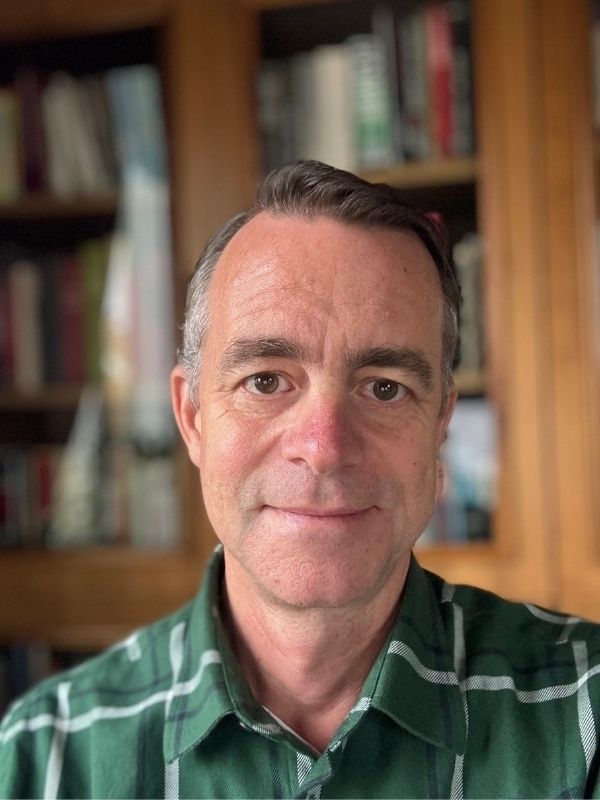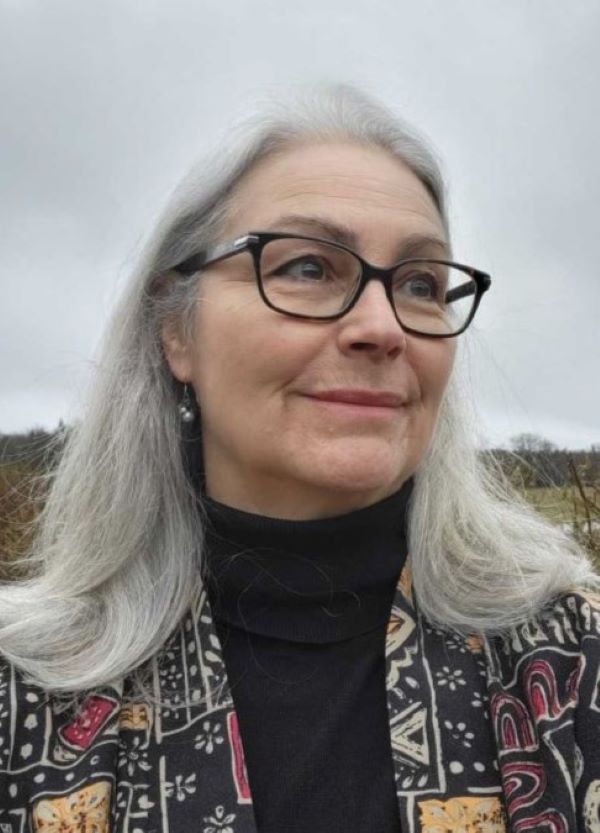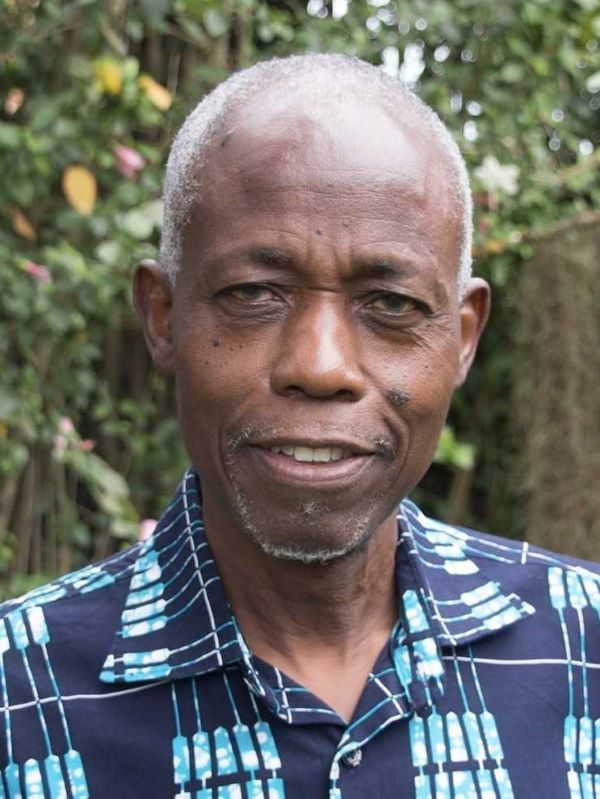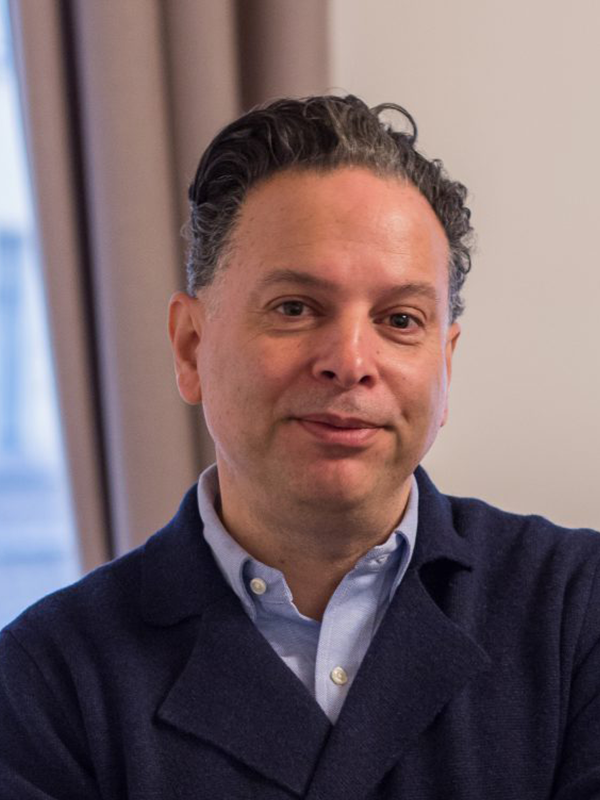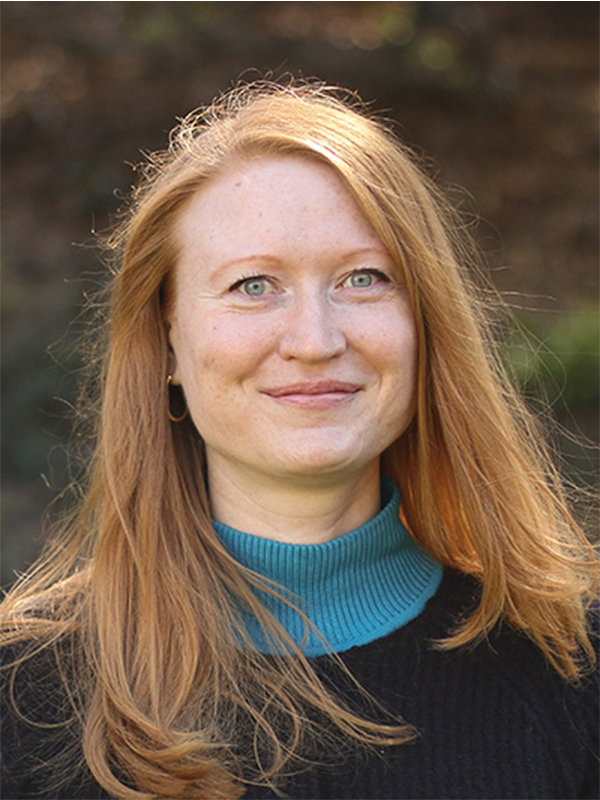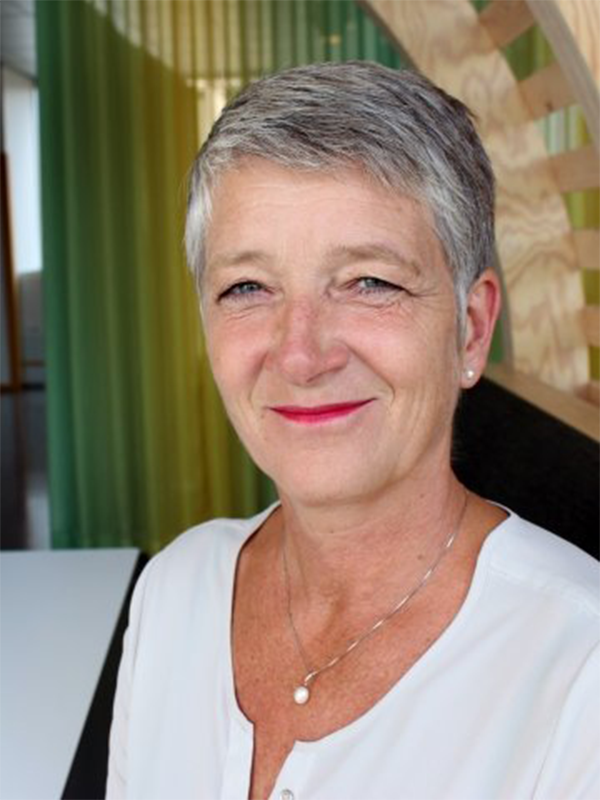About SPIDER
A centre of enablement for inclusive digitaliation that benefits all
Vision
An interconnected world where digital solutions enable everyone to have their needs met and their voices heard.
Mission
To ensure the use of appropriate and accessible digital solutions to improve the opportunities and capabilities of poor and marginalised groups everywhere
A center of enablement for digital equity
Very few things have altered the world as much as the digitalisation of our global communities. The COVID-19 pandemic showed us how essential it is to have access to digital tools and how crucial systems-building is when we digitalise our societies. It is easy for many in the well connected cities of the world to assume that the right and access to digitalisation is enjoyed by everyone. This is far from the truth, even in these cities themselves. It is therefore essential to consider how we can achieve digital equity everywhere.
While it is true that the rapid speed at which we are innovating and progressing digitalisation is mind boggling, we must not forget that currently, digitalisation itself impacts on climate, or that 34% of world population are still not online.
Digital economies open up oportunities for groups of people who have lacked access to opportunities in the job market, but digital skillsbuilding and training needs to be expanded and the step into work for women in STEAM is still steep.
So how is SPIDER adding value? We bring people together to focus on digitalisation as a tool for human centered digitalisation, we support national development plans that are led by the people in the country and we make sure that all our work is informed by evidence gathered by local research institutions and experts. This is our recipie for advancing towards the Sustainable Development Goals in Agenda 2030.

Two decades of digital development expertise
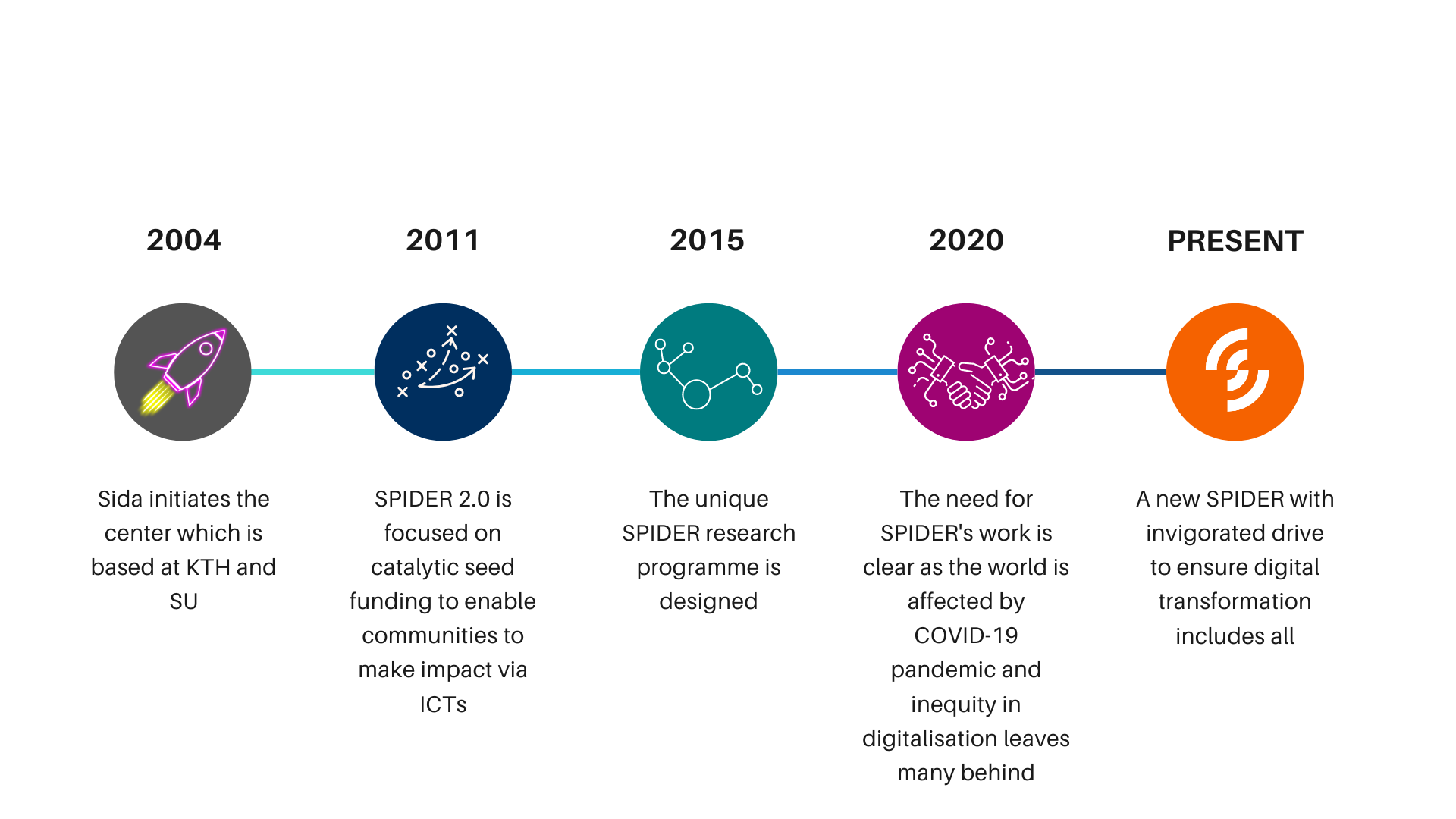
SPIDER Team
Last time we counted, we represented over eight countries and beyond 30 languages, despite only being a team of just over dozen people. What unites the team is the belief that digital transformation has the potential to break down barriers and advance development in an unprecedented way to bring about equity and inclusion.
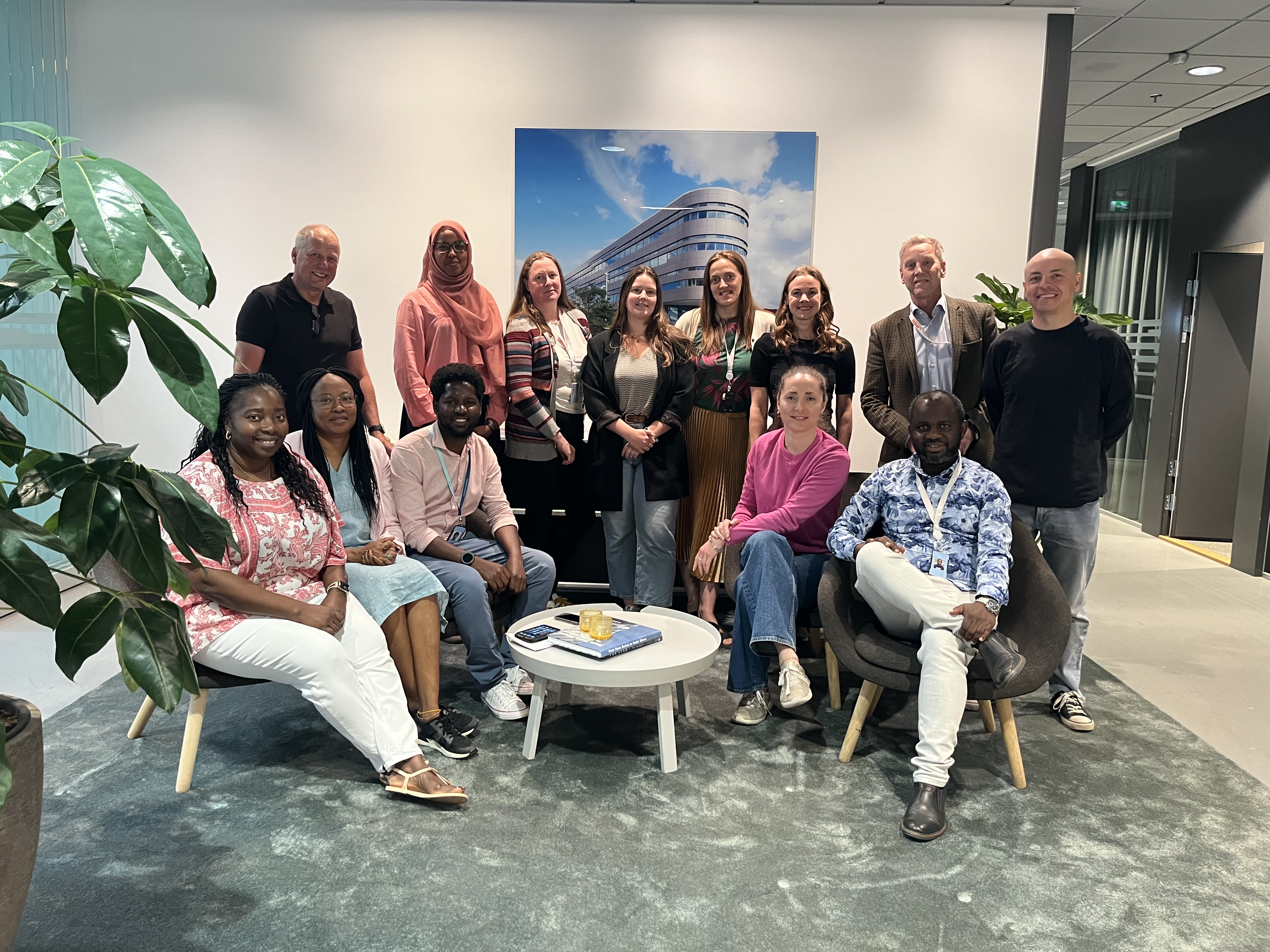
Meet the SPIDER Board of Trustees
Ulf Pehrsson
Lazar Rusu
Carl Jeding
Michelle Bouchard
F F Tusu Tusubira
Rodrigo Garay
Laura Hosman
Susanne Guidetti
SPIDER Staff Team

Caroline Wamala Larsson, PhD
Director
Dr Wamala Larsson’s expertise is in Gender and Technology with research focusing on digitalisation. She investigates how gender and technology are culturally embedded and how they mutually influence each other.
Caroline’s work is at the intersection of practice and academia where she values translating theoretical concepts into actionable strategies and solutions, then critically analysing practical experiences to refine and expand existing theories.
I have firsthand experience of the transformative power of digital access. Everyone, no matter their background, deserves this opportunity.
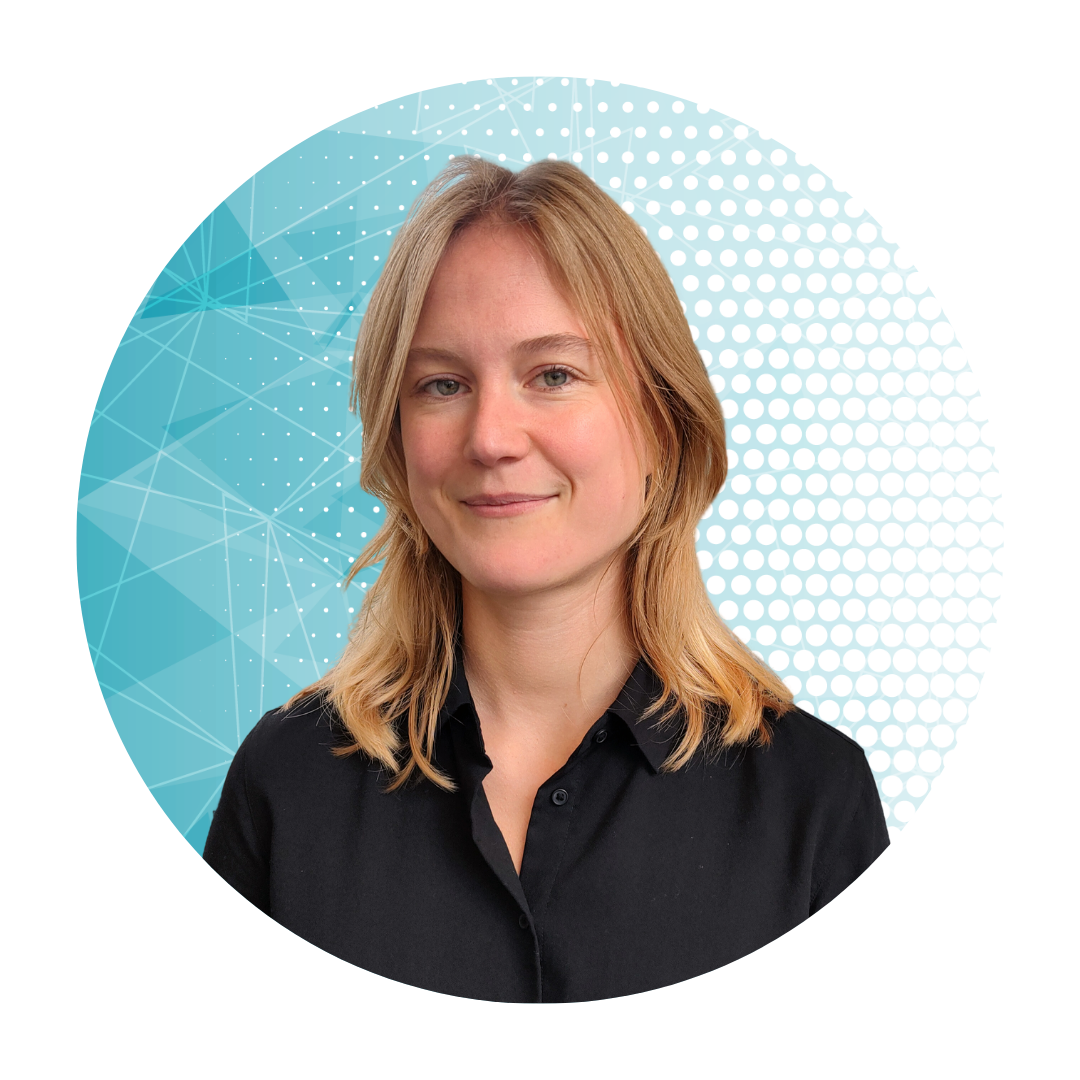
Agnes Kalmér
Programme Administrator
Agnes studied at the Academy of Fine Arts in Umeå and The Lee Strasberg Theatre and Film Institute in New York before commencing studies in International Relations and Economic History at Stockholm university.
Agnes has worked with film, theatre, set design and within health care at the emergency department for children. While interning at SPIDER she was inspired by the innovative methods used and capacity to create action, it was an educative and eye opening experience.
From the network humans create exchanging knowledge and experiences, collaborations can grow. The many hands assembled by digitalization fill different parts of a puzzle; at SPIDER I got proof of how a fragmented vision could become whole and turned into reality.
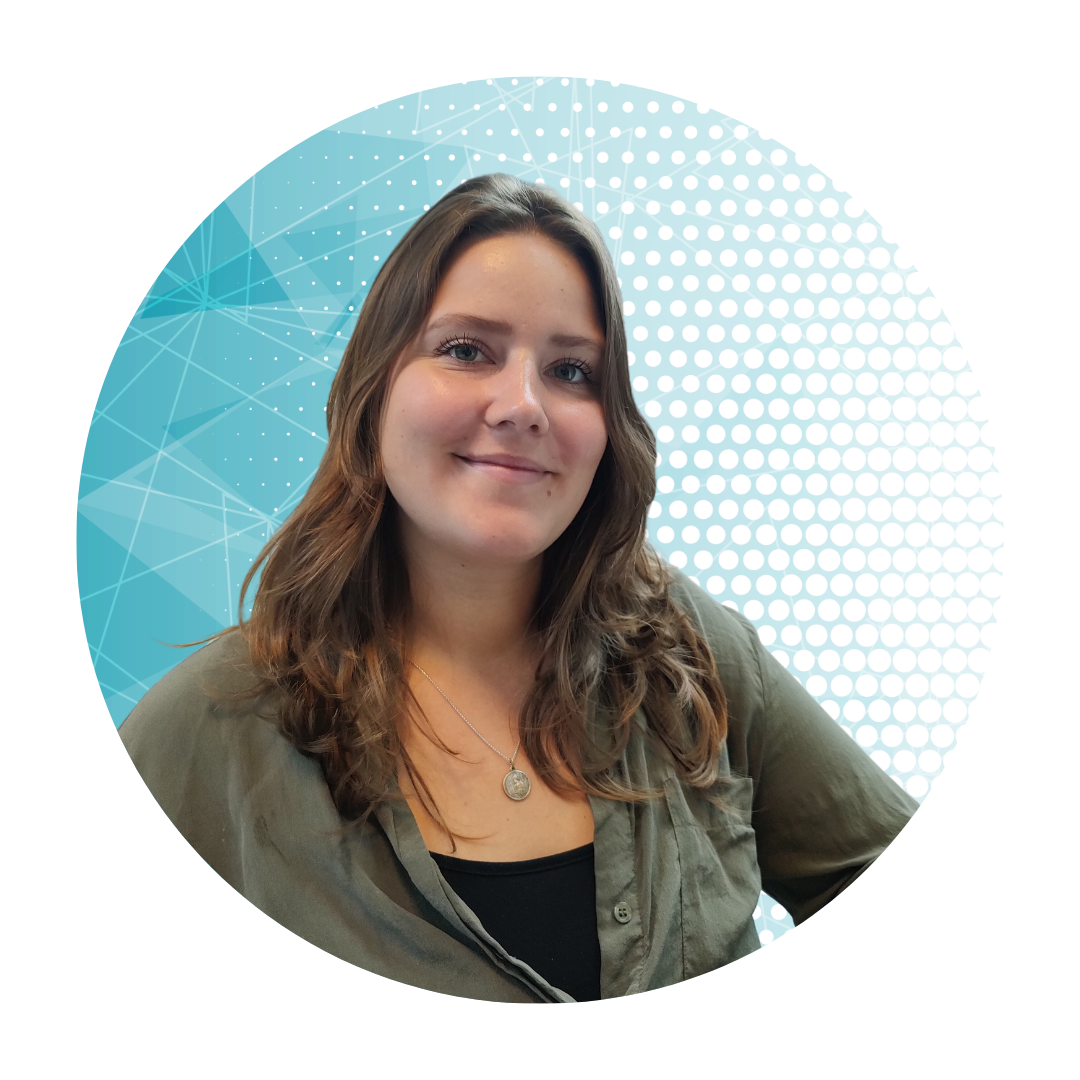
Alexandra Högberg
Operations and Capacity Development Manager
Alexandra’s academic background is within Political Sciences and Public Health and her studies have taken her to Sweden, Canada, and France. She is currently deepening her knowledge of French and Portuguese.
Professionally, Alexandra has also worked within the legal sector, particularly in mergers and acquisitions for real estate as well as Corporate Social Responsibility. At SPIDER she contributes her skills to various projects and functions of the organisation, now fully emerged in the iPRIS programme where she works with project management and Portuguese engagement.
My motivation for development work stems from a genuine desire to create opportunities for others and foster discussions and actions for a brighter future.
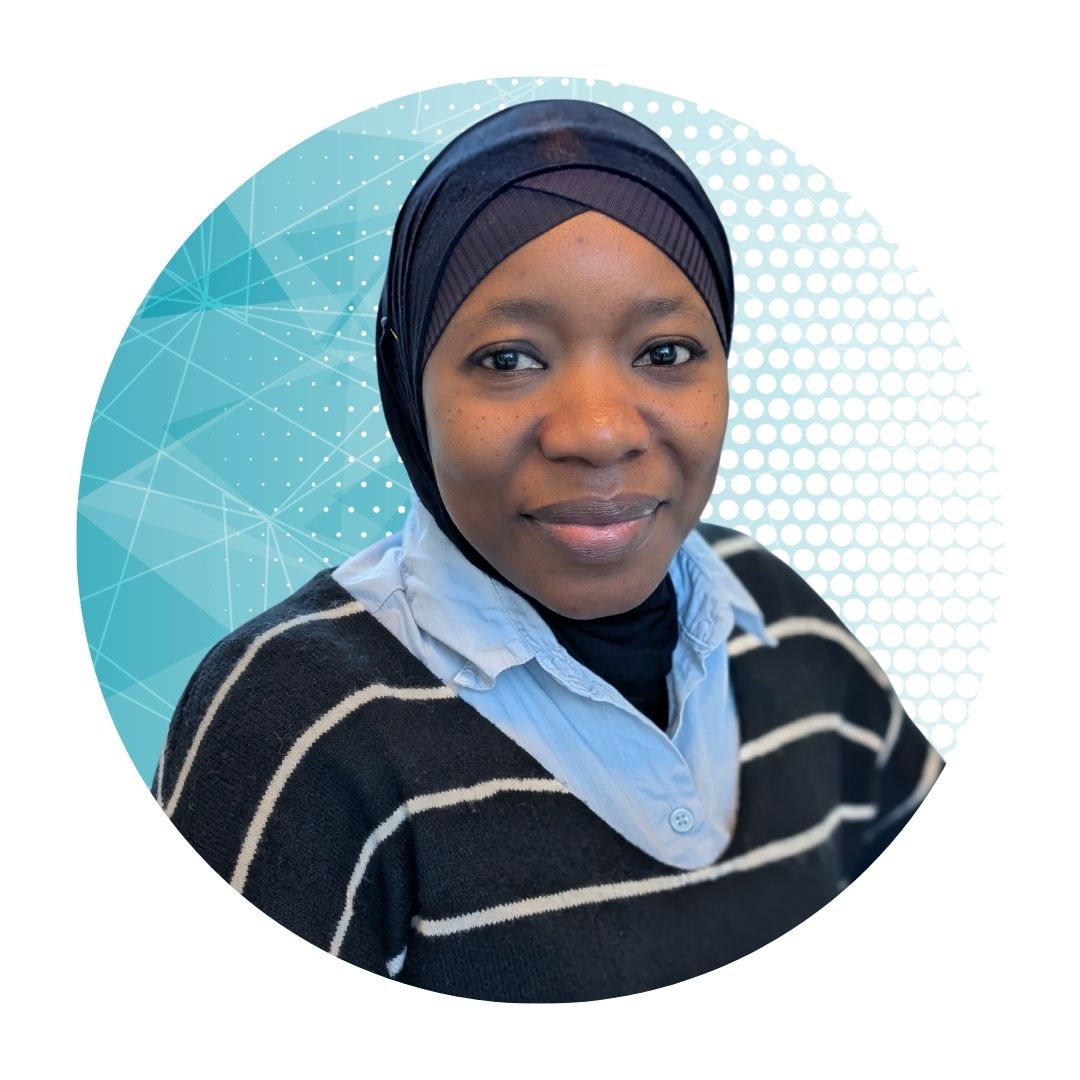
Aminata Ndiaye
Program administrator
Aminata has an accounting background with experience from both Senegal and Sweden. She is the administrative support from the francophone part of the iPRIS project.
Joining SPIDER as a Project Administrator is an exciting opportunity, as this organization embodies a vision of digitalization that places people and the planet at the heart of innovation. Too often, technology is developed for its own sake, without considering the real needs of communities.
Digitalization is now a key driver of development, but it must be guided and structured to ensure that it benefits everyone equitably. Without a community-centered approach, it risks deepening existing inequalities.
I firmly believe that technology should not be an end in itself but a tool to create a fairer and more inclusive world.

Bengt Mölleryd, Phd
Senior Analyst
Ph.D dissertation “Entrepreneurship in technological systems: The development of mobile telephony in Sweden” Stockholm School of Economics 1999, guest researcher at wireless@kth, Royal Institute of Technology, 2009-2022.
Senior analyst at SPIDER since March 2024, senior analyst at the Swedish Post and Telecom Authority (PTS) 2009-2024, designated chair for the working party on Communication Infrastructure and Services Policy at the OECD 2019-2023, financial and telecom analyst at four investment banks 2001-2009.
It is exciting to work with issues around connectivity as it is a prerequisite for digital transformation and follow how it is reshaping working and social life.
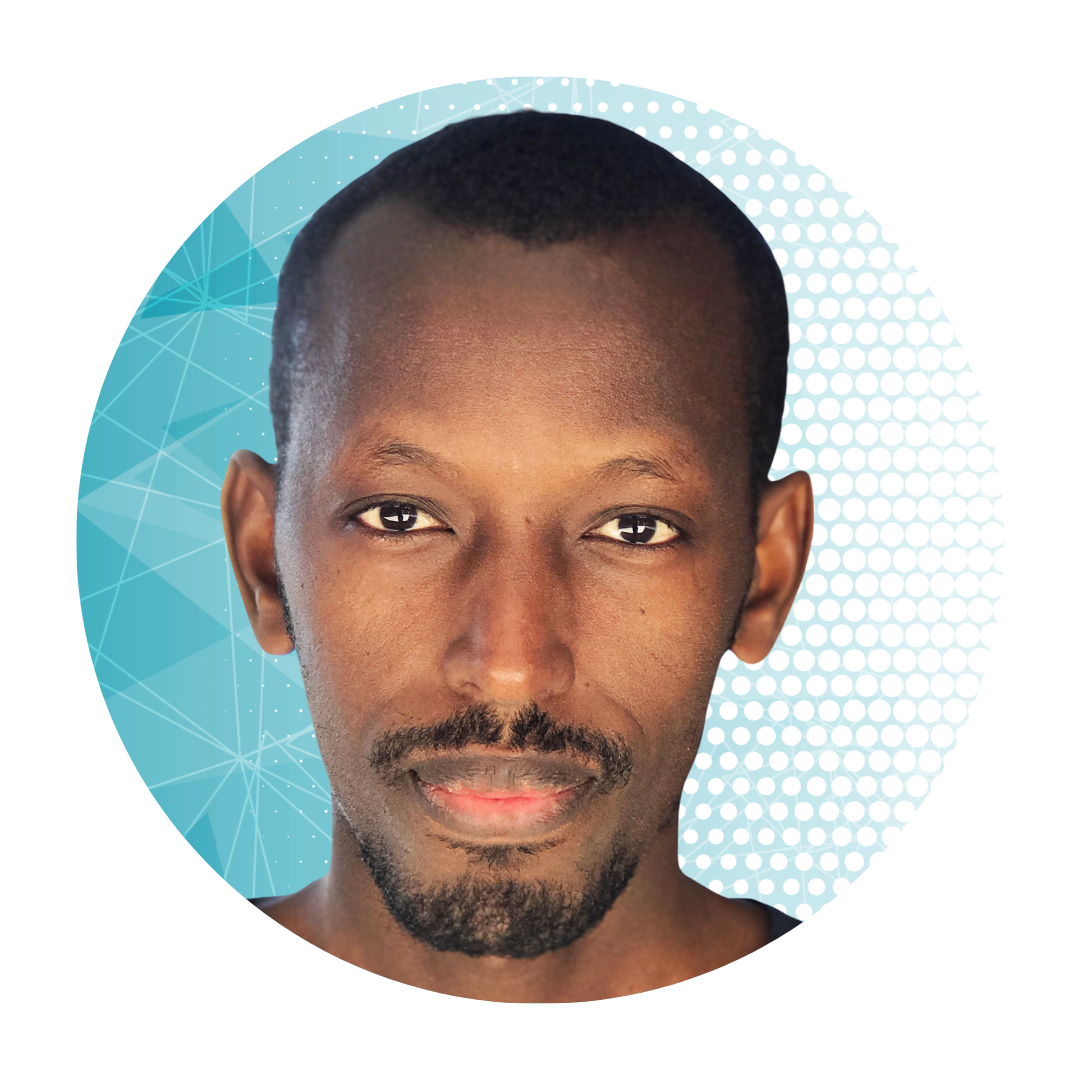
Edgar N. Asiimwe, PhD (on leave)
Programme Manager for Research
Edgar is Programme Manager for Research at SPIDER. He is an information technologist with a degree in IT, a Masters and PhD in Informatics. His strong expertise in the implementation of ICTs for development, research and management of development programmes makes him an asset to the team. He has over 13 years of experience in the application of ICTs in different settings especially in least developed countries. Before joining SPIDER, he served in many roles as a researcher, university lecturer, ICT consultant, and entrepreneur.
The majority of the world’s population depends largely on digital technology. I work in digital development because I have witnessed how the use of ICTs transforms lives of people and creates opportunities for the delivery of services.
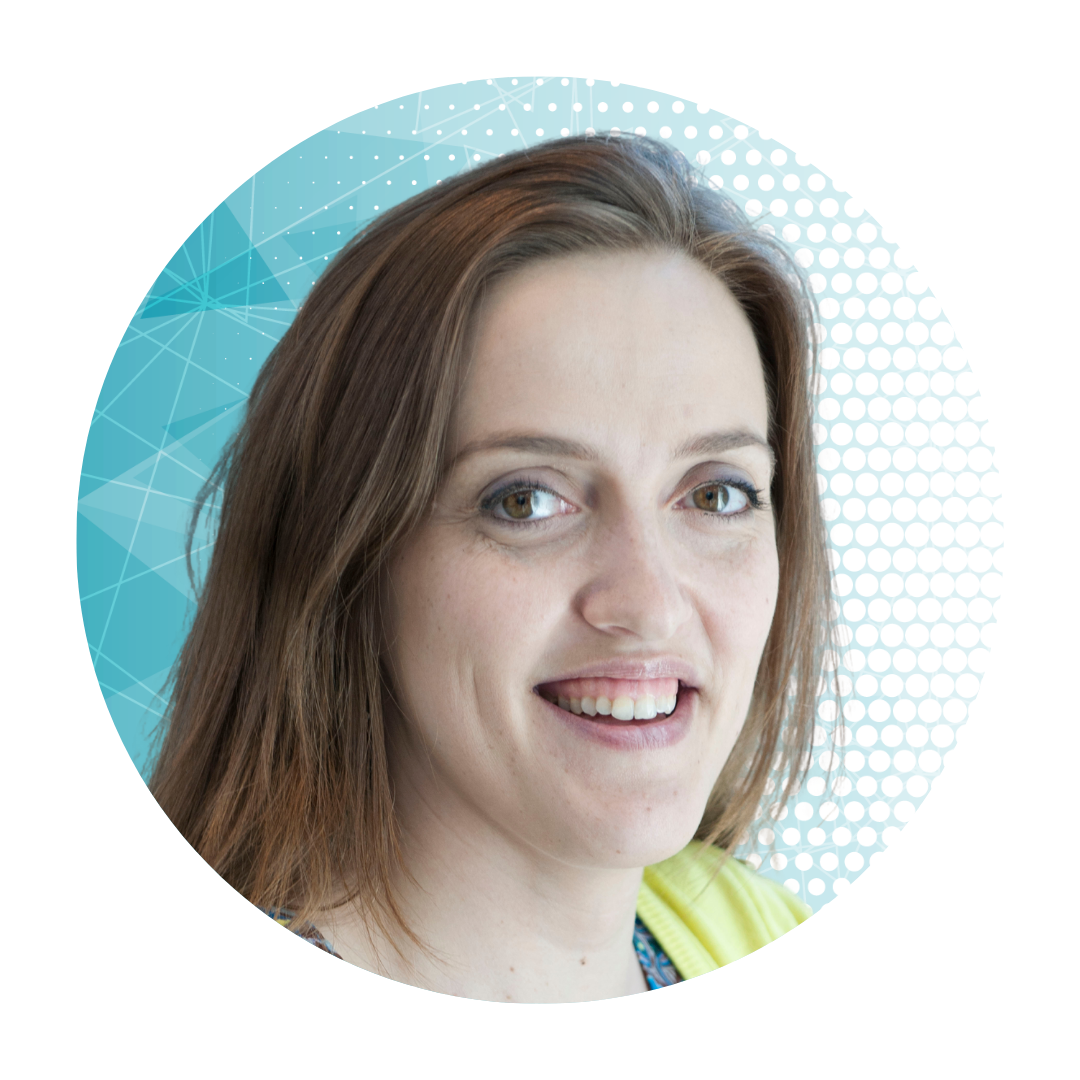
Edna Soomre, MA
Head of Partnerships, Innovation & Digital Health
Edna has an academic background in International Relations and Development studies, with a Masters in International and Comparative Legal Studies, and has spent nearly twenty years working with Human Rights, Global Health, and International development. A focus on intersectionality, gender equity, representation, and a rights perspective paves both her academic and professional life.
Digitalisation has the potential to be a game changer if we get it right, but we must not forget that it is a tool in the hands of human beings and it is we who decide how to use it for societal, economic and political rights in the best way. To leave no one behind in the digital revolution sweeping our planet, we have to be inclusive in the way we plan, implement and evaluate digitalisation programming.
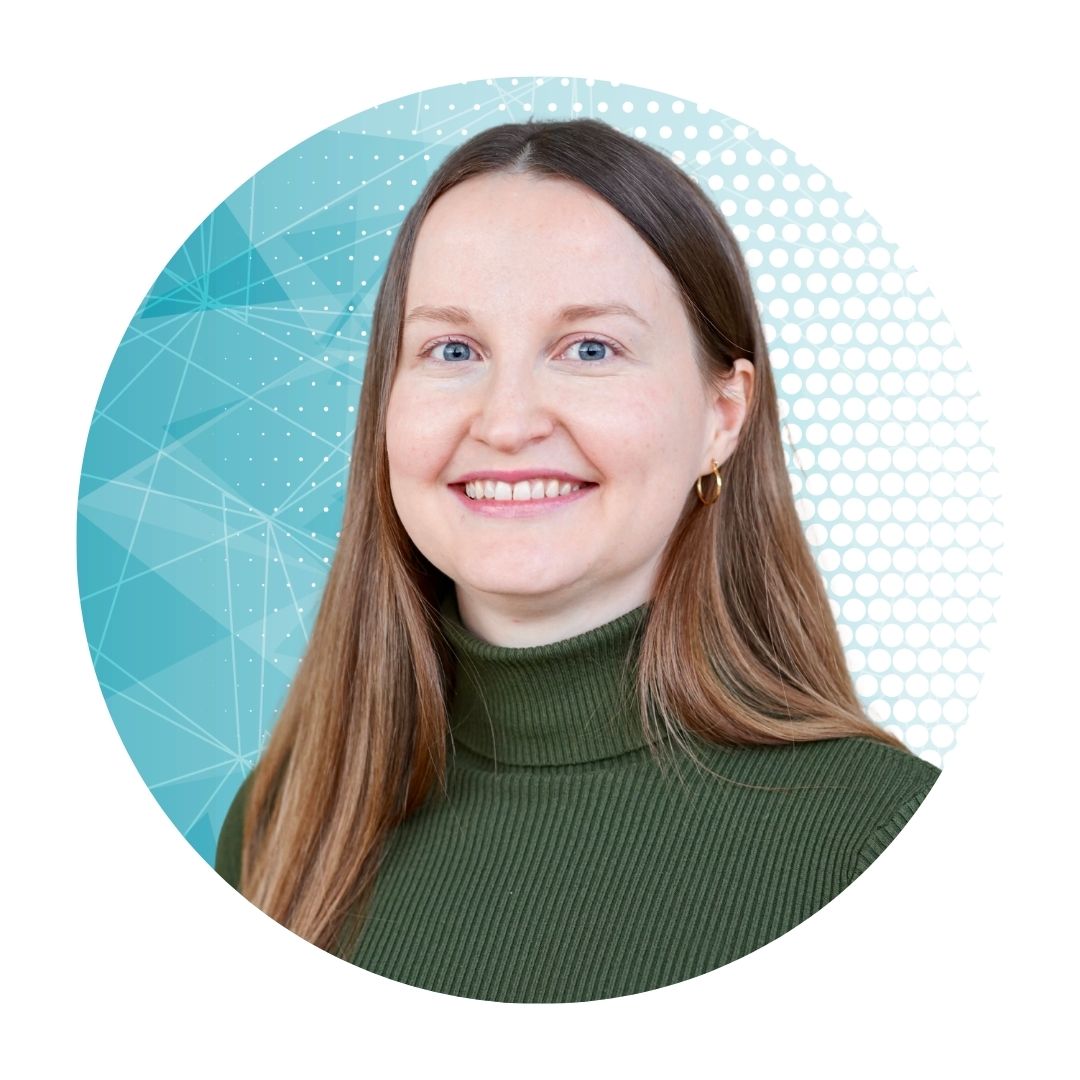
Fabiola Stein, PhD
Project coordinator
Fabiola is an educator and researcher with an academic background in Applied Linguistics and Education. She is experienced in leading educational initiatives and communicating research insights to practitioners, working to strengthen evidence-based practice in different fields. Within the iPRIS project, she is responsible for coordinating and facilitating capacity-building initiatives in Portuguese-speaking African countries.
Digitalization has immense potential to strengthen and even transform essential sectors like education, health and public services. To realize this potential, I believe that capacity-building through peer-to-peer learning is key, as in this way we can ensure that digital development is both sustainable and inclusive.
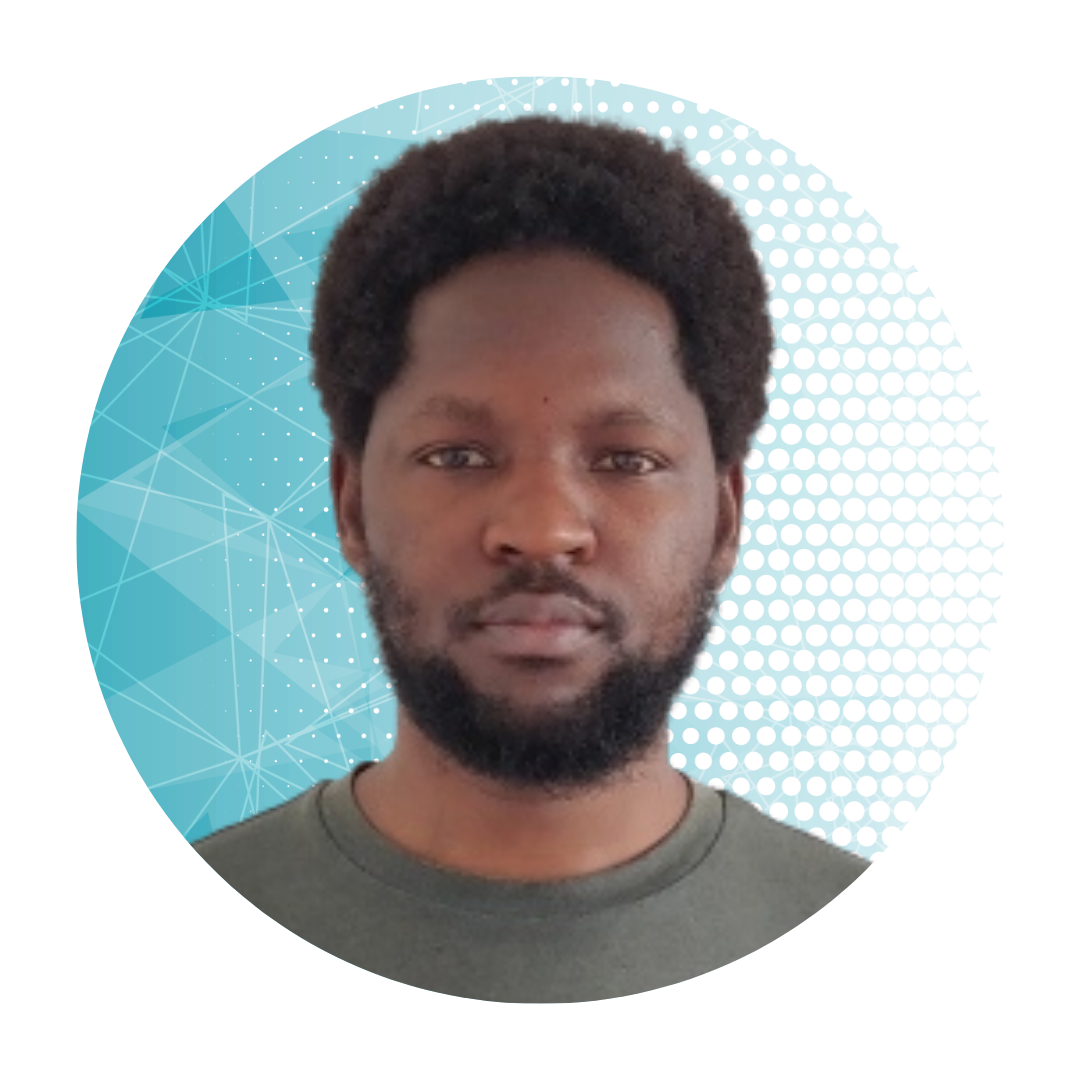
Dr Johnblack K Kabukye
Post-doc
A medical doctor with over a decade of experience in clinical practice and research in cancer, and in development and evaluation of digital health solutions in Uganda. Dr Kabukye obtained a Bachelor of Medicine and Surgery from Makerere University in Uganda, a Master of Health informatics from Stockholm University and Karolinska Institutet in Sweden, and a PhD in Medical informatics from the University of Amsterdam in the Netherlands.
He is currently postdoctoral researcher within Digital Futures, a research network between Stockholm University, KTH Royal Institute of Technology, and RISE Research Institutes of Sweden. Johnblack is based at SPIDER – and his postdoctoral research is on the use of mHealth to measure and improve patient empowerment and patient-reported outcomes, with a focus on mental health and cancer.
Digital tools have the potential to truly transform healthcare – improve its efficiency, accessibility, and affordability, and make it more equitable and sustainable. However, too often, the focus is put on the technology rather than the people – patients, nurses, doctors, and healthcare managers – which leads to poor usability or digital tools that do not fit into the healthcare workflows. This reduces the value or utility of digital technologies and their long-term adoption. I am excited to use my clinical and technical backgrounds to bring a socio-technical lens to digital health development.
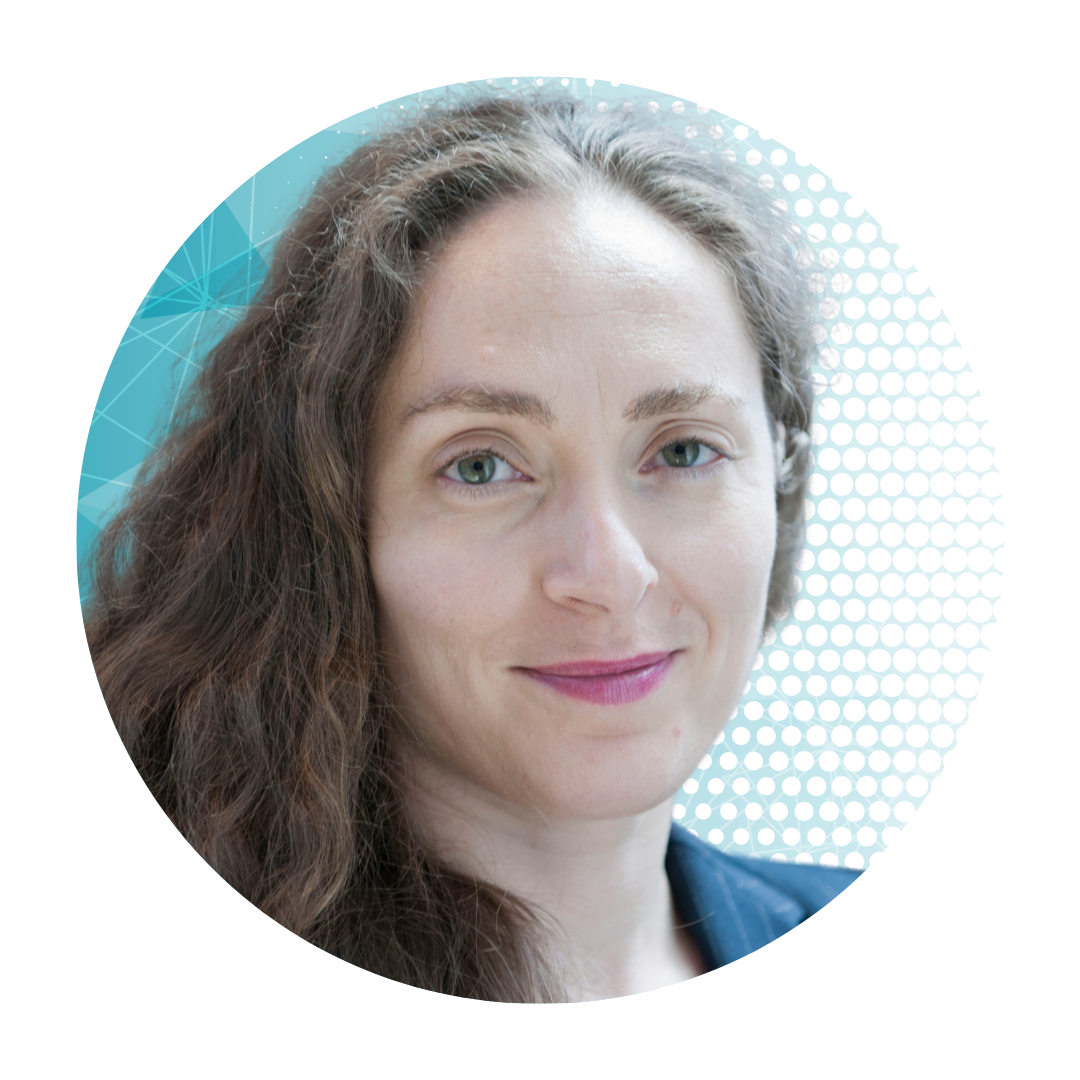
Katja Sarajeva, PhD
Programme Manager
Katja holds a PhD in in social anthropology with focus on globalisation, subculture and the relationship between digital and real spaces. She has worked with international development and digitalisation for over a decade with focus on Transparency & Accountability and Open Data and how to ensure that everyone has access to the benefits of society
Technology is an integral part of human progress across cultures. To get the most out of the opportunities that technology brings we must understand people where they are and build collaboration between people with complementary expertise to foster contextual and sustainable innovation that can bring us closer to our goals.

Malena Liedholm-Ndounou, MPhil
Programme Manager
Malena is a political scientist with focus on international development, gender and public health. She has over twenty years of experience managing international development projects in Sub-Saharan Africa, including ten years designing, coordinating, delivering and evaluating training programs.
If we manage to bridge the digital divide, digitalisation has the potential to be a great equaliser. Digital access is an effective way to empower marginalised groups since it allows everyone’s voice to be heard.
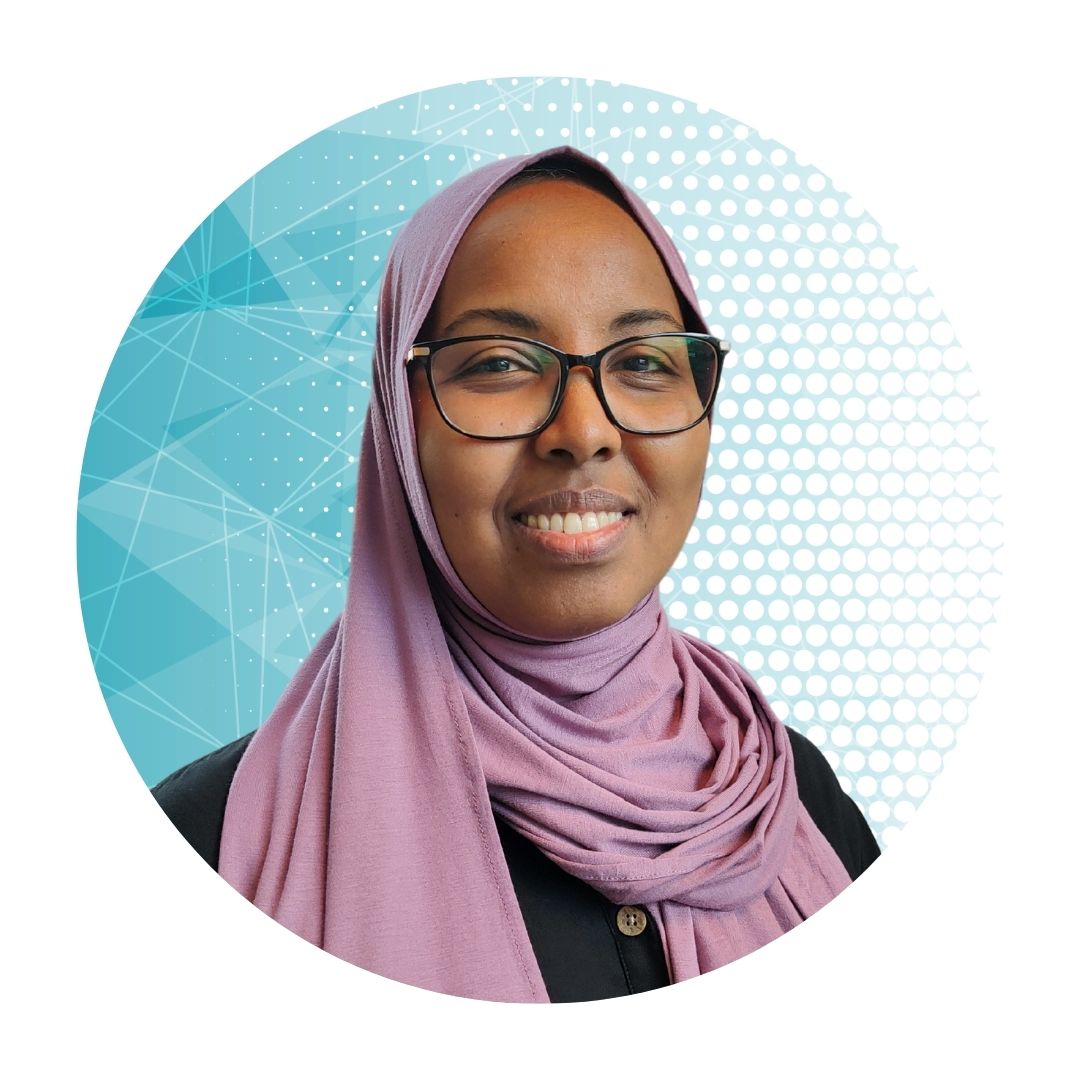
Muna Elmi, PhD (on leave)
Programme Manager for HADDA
Dr Elmi’s background is in cell biology with focus on understanding the adult nervous system. In her professional capacity she has conducted fundamental research as well as applied science before transitioning into international development in digital health.
Muna is a diplomatic leader who has the gift of joining people and coordinating multi-sector engagement for improved health across borders.
I am fascinated by the potential technology offers to enhance human wellbeing and empower communities through digital development.
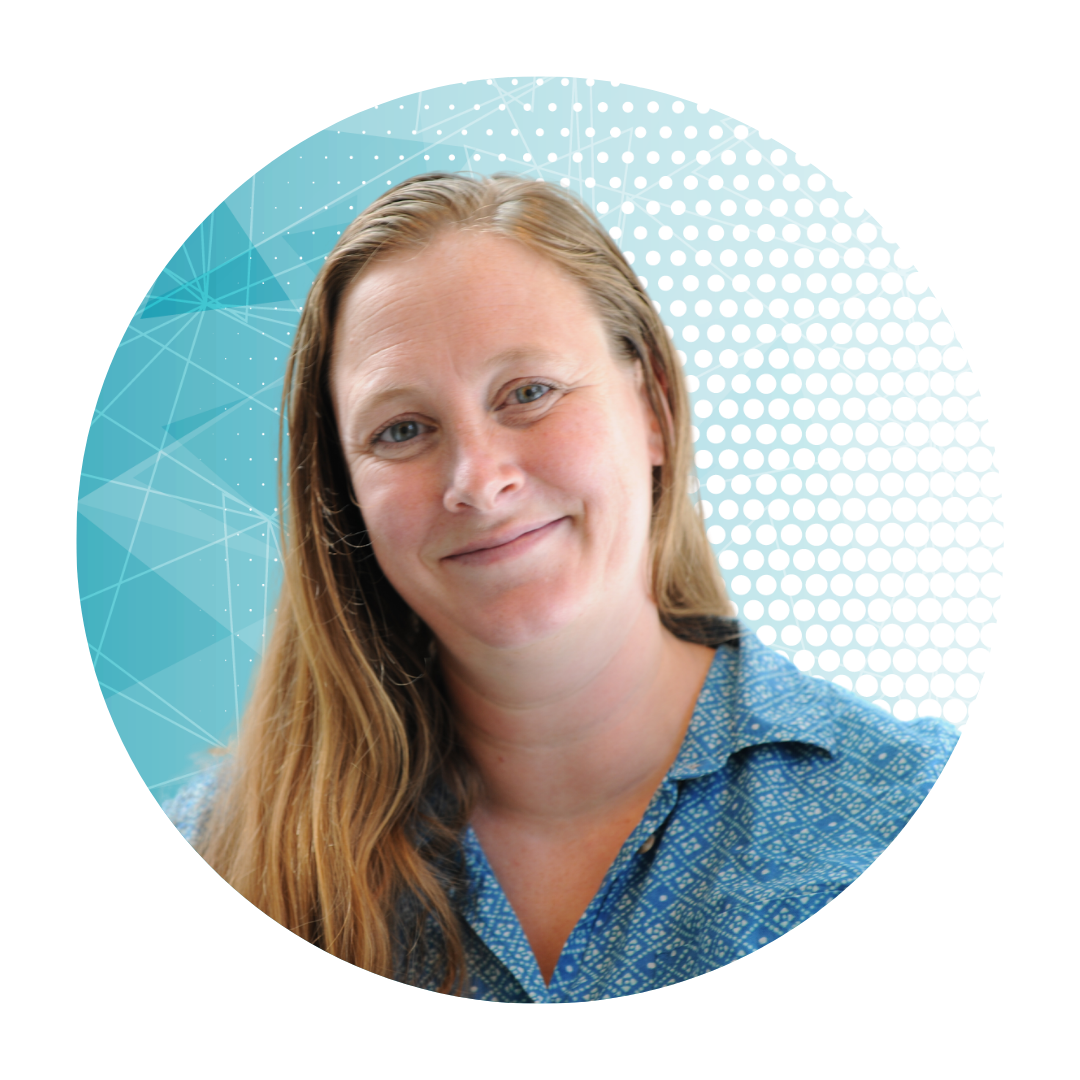
Petra Rindby
Programme Manager
Petra has a background in linguistics and media studies. She has worked with a wide range of initiatives and tasks, ranging from project management, administration, financial auditing, project proposal evaluations and development projects most of her career. Her attention to detail in public and legal agreement matters is a valued skill in the team.
I work in digital development because I think the cross-pollination of technological and human development has created the most exciting sector to work in.
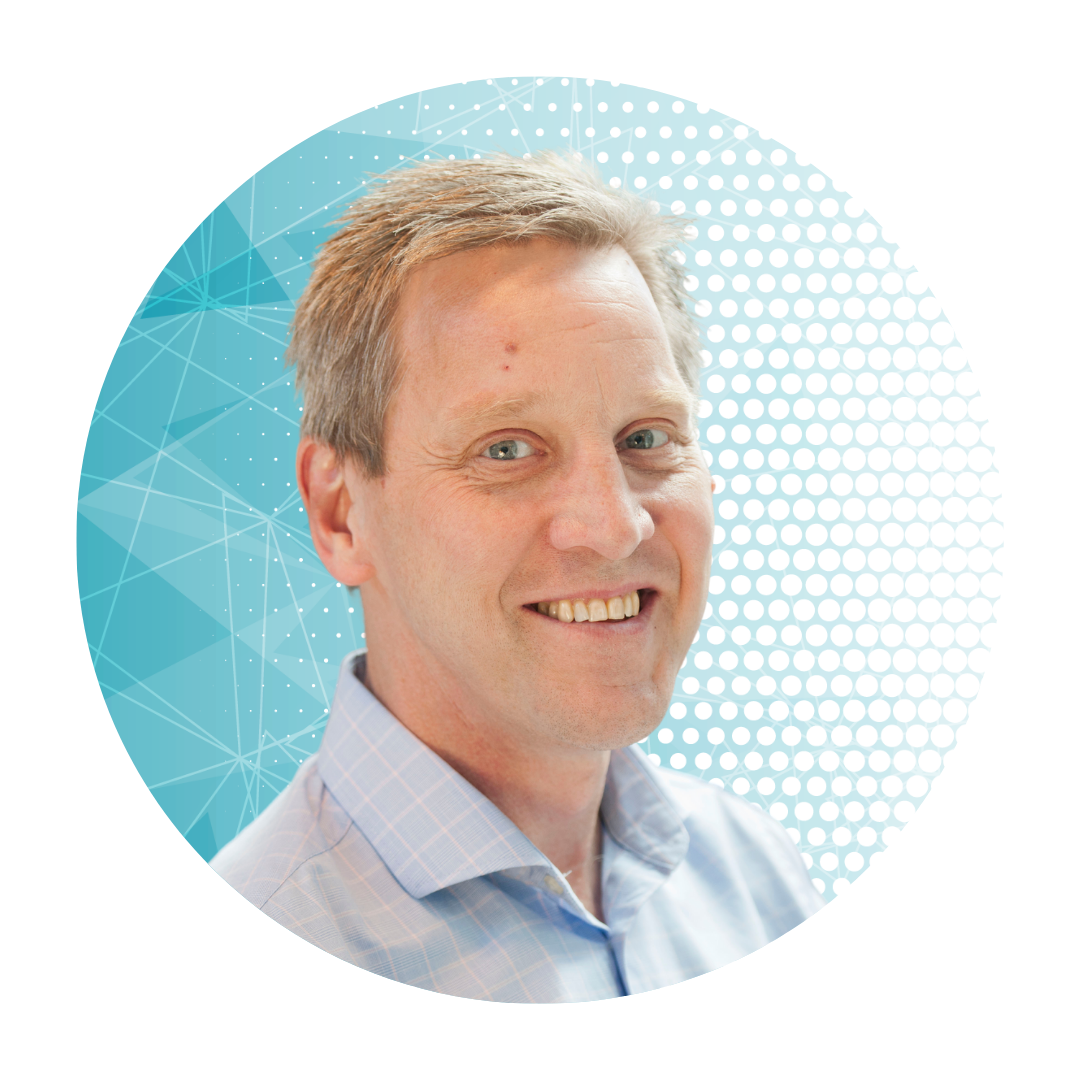
Ulf Larsson, Ph.Lic.
Programme Manager
Ulf has a BSc of Informatics from Jönköping University, and a Ph. Lic. in Information System Development from Linköping University, with the theses focus on the interaction between users and developers in a systems development process. He has experience in programme management and lecturing at the undergraduate level in business informatics and systems sciences, as well as coordinating development projects in education and capacity building within telecom regulation.
It is exciting to play a part in digital development by facilitating peer-to-per learning and capacity building within the ICT regulatory environment to improve meaningful connectivity for all.



